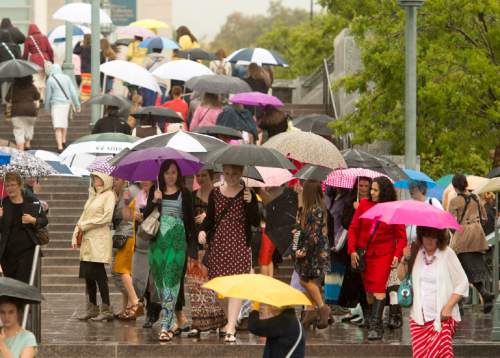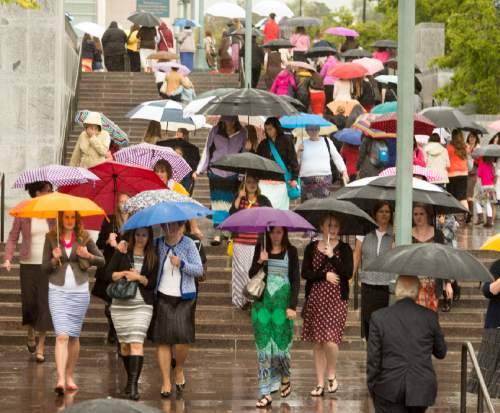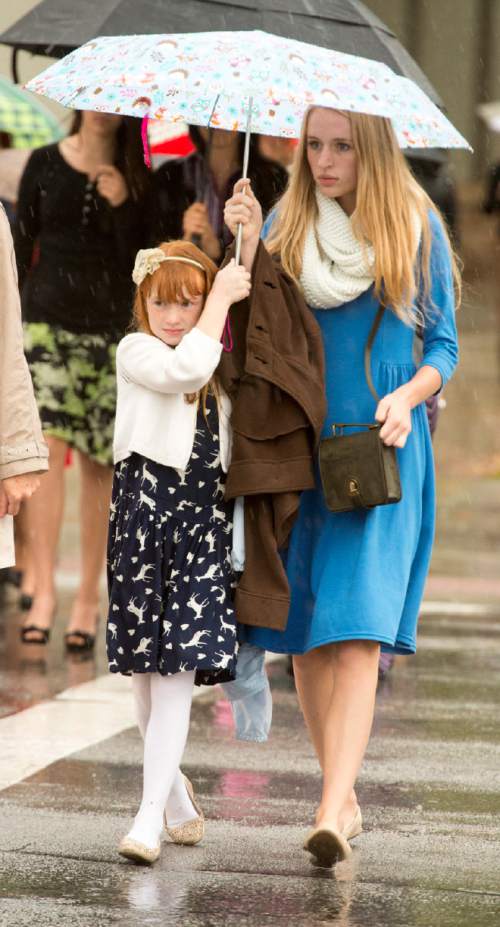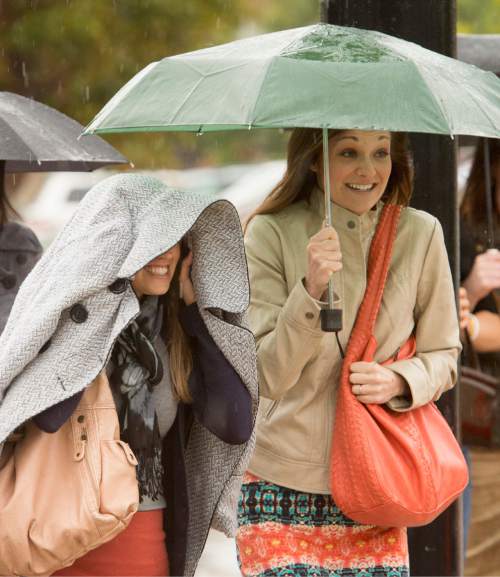This is an archived article that was published on sltrib.com in 2015, and information in the article may be outdated. It is provided only for personal research purposes and may not be reprinted.
And the debate about what to call the LDS General Mormon Women's Meeting continues — with some Mormon authorities on one side, the church's public affairs arm on the other and church-owned publications going back and forth between them.
To recap: On the night of the Sept. 27 gathering, Dieter F. Uchtdorf, second counselor in the governing First Presidency, called it the opening of the faith's semiannual General Conference.
The following weekend, though, several speakers referred to Saturday morning as the first session of the conference. Later that evening, LDS Seventy Bruce A. Carlson said, in his prayer, that the priesthood session was the "fourth session of this special conference," implying that the women's meeting was the first session, followed by Saturday morning's gathering as the second session, the afternoon meeting as the third session, and the priesthood meeting as the fourth.
By Oct 10, Carlson's prayer on the official website of The Church of Jesus Christ of Latter-day Saints had been edited to remove the reference to the "fourth" session.
The reason, LDS Church spokesman Dale Jones said in a statement Friday afternoon, was that the women's meetings "are not usually referred to as a session of General Conference."
That apparently was news to the LDS Church News, which listed the 2014 announcement that "the General Women's Meeting was the first session of the semiannual General Conference" as one of its "20 Memorable Events in General Conference."
After bloggers discovered and publicized the News' statement, it, too, was edited out.
At this writing, Uchtdorf's reference and the 2014 announcement about the women's meeting are still listed at lds.org.
Such conflicting accounts pose a problem not only for the women's meeting or for Mormon feminists in general, but also for historians trying to track developments in the Utah-based faith.
"Future historians, who study Mormon women in the early 21st century, might use digital newspapers, blog entries or Facebook posts to round out their research, assuming they will still exist," writes Kristine Wright, who blogs at Juvenile Instructor. "Data corruption, loss of access and the ease with which things are altered/deleted are all issues worthy of consideration for those relying on the digital archive."
Wright suggests that historians and researchers might need to capture screen shot and print it out "while the getting is good."
Peggy Fletcher Stack









